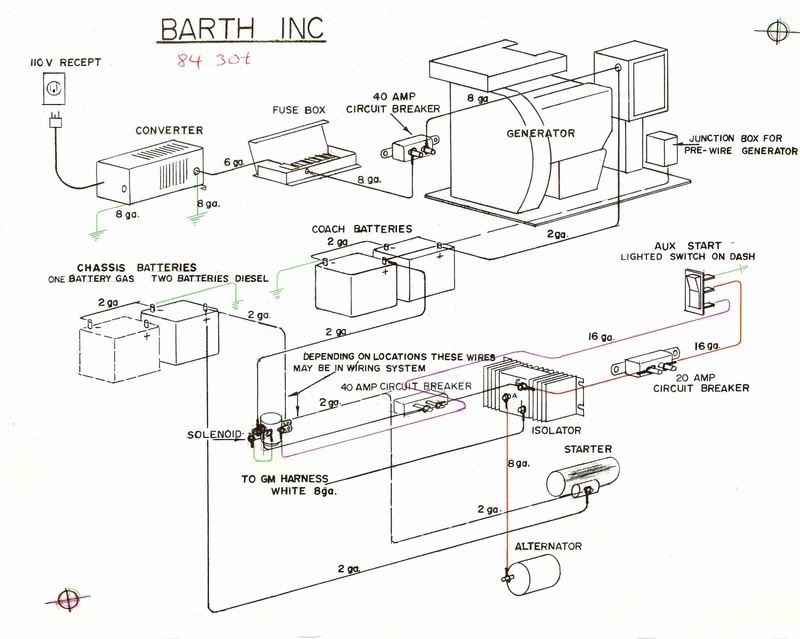07-03-2007, 03:46 PM
Dennisamp drain
I have a 1.7 amp drain on my coach batteries and I cannot find the problem. I pulled all the fuses one at a time to see if the drop stops. Nothing worked. I checked for lights on in cabinets and found nothing. I checked the propane alarma and it is OK. I check the booster on the TV and there is nothing wrong with it. I think I'm just going to take a battery cavble of the batter and quit looking. Any ideas?
07-03-2007, 04:59 PM
bill hDennis, I am going to assume you have a P30. You might consider listing your model in your signature to help others help you.
Anyway, the typical wiring is a 2 ga wire running from the battery to the parallel relay to the genset starter and then back to the big fuseor CB and then the little fuses. What happens when you remove the big fuse or CB?
What happens when you disconnect the connections at the genset starter? Are there any fuses or CBs hiding in the gen compartment?
What happens when you disconnect the isolator coach batt terminal?
And lastly, what happens when you get underneath and disconnect the wiring at the paralleling solenoid?
Are there any extra wires connected at any of these points? Look above the radiator for extra wires connected to the CBs.
Here is the diagram that came with my 84, in hopes that it helps a little.

And lastly, installing a green knob disconnect is handier than a hard disconnect.
07-04-2007, 12:20 AM
DennisThanks Bill The coach is indeed a 1886 28' P-30. I knew you would be able to help me out. I installed a solar charging system today to help me keep my batteries up when I'm away from a plug in. It is really hard on the batteries to keep them in a constant stag of charging all the time. The light bill went up $25 a month just to keep the batteries on the inverter.
07-04-2007, 11:39 AM
RustySomething is odd if your electric bill increased by $25 - this would mean the converter was drawing ~250 KWH/mo., or around a constant 340W, charging the batteries at a rate of a constant 25A @ 14VDC.
Also, most converters (even if yours is original), wouldn't charge batteries constantly. You'd notice depletion of the battery fluid if it were.
If this is the case, it's time for a new converter...and the new ones have float and desulfating cycles. About $150-170 for a 60A converter, DIY.
